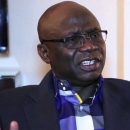I was thinking about this again this week when a mean story that went viral – a man live-tweeting his interactions with a woman on the plane – was revealed to be fake. At the same time a Twitter conversation between a comedian and an American salsa brand – which appeared to result in employees being fired and had shot, sneeze-like across the internet – was confirmed as a hoax.
I'd clicked on a Twitter link, read the BuzzFeed aggregations of screenshots, and I felt something twitch where outrage sometimes lives. A recognition that this could get annoying if repeated – a story written by a reality TV producer then reported as fact by an international media company (BuzzFeed's post got almost 1.5m views) and shared frantically by those who think it's real. Because if it hadn't been real – if, unlike the alleged non-magic of the alleged non-magician, it had advertised itself as fiction – nobody would have clicked even once. It would have fallen off the bottom of the internet within a day.
Which is not to say there's not a place in our lives for these tales. We love a good story. Endings that make you cry, twists. And the internet is where we gather to hear them today, cross-legged, with our milk. But the framing of the story is important. The point of the story is important. It's either told for the joy of telling a tale, or it's told to promote something for sale – listening to both can be a pleasure, as long as we know. As long as we know. When the truth is later revealed, it feels vaguely… evil.
It's harmless, of course – nobody was hurt, nobody will be hurt – but it does affect how we will engage online in the future. We will trust less, and enjoy less, and our lives will become fractionally worse. But the issue lies not with the storyteller – it lies with the sites that share it.
BuzzFeed is a lot of things. It's a gallery of grinning dogs. It's a thousand comedy lists about the 90s. It's a scrolling advert, a comic sports site, a politics blog, a moving newspaper, and its ad revenues this year are estimated to be $40m. As it stretches across our consciousness like clingfilm, its responsibilities are being called into question more and more. As a news organisation, profiting from the stories it shares, shouldn't it be verifying them before it publishes?
And if this continues to happen – if it repeatedly reports on fictions as if they're fact – then won't it start to lose us, its fast-clicking readers? We don't expect every story posted by a stranger on Twitter to be true, but we do expect every story reported on by a huge media organisation to be, because that's what they're for. The point of them is to filter through the daily mess of culture and to repackage it for us in witty, bite-sized, trustworthy chunks. The more they mess up, the less we'll return.
The thing is, I don't think magic is real. I don't. My dad was briefly a magician called the Great Malcomo, and I saw the safety blade on his guillotine. There are parameters to an illusion; you know where the sides are. When they fall away, it's not a magic show at all. It's just a man in a cape showing you his rabbit.





